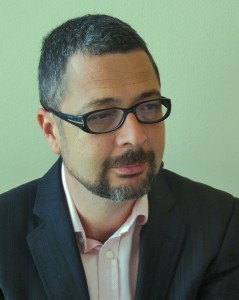Every country, culture, sport or industry around the world is awash with inspirational tales of leaders past and present. Although each is unique, they all share specific traits: exceptional purity of vision, laser-sharp focus, a winning drive and an ability to take the right decisions at the right time to align short-term priorities to their […]
 Every country, culture, sport or industry around the world is awash with inspirational tales of leaders past and present. Although each is unique, they all share specific traits: exceptional purity of vision, laser-sharp focus, a winning drive and an ability to take the right decisions at the right time to align short-term priorities to their long-term audacious goals. Theyre also masters in communicating and motivating all those concerned. However, how many leave an ecosystem that will ensure sustainable leadership for those that follow?
Every country, culture, sport or industry around the world is awash with inspirational tales of leaders past and present. Although each is unique, they all share specific traits: exceptional purity of vision, laser-sharp focus, a winning drive and an ability to take the right decisions at the right time to align short-term priorities to their long-term audacious goals. Theyre also masters in communicating and motivating all those concerned. However, how many leave an ecosystem that will ensure sustainable leadership for those that follow?
Napoleon, Alexander the Great, Mandela, Martin Luther King Jr, Ghandi, John D. Rockefeller, Dino Zoff, Mahendra Singh Dhoni, Bill Gates, Ratan Naval Tata, Prince Alwaleed: all five-star leaders. But who would you have lead your space programme? If the goal is to build a thriving, sustainable space programme, then building leadership competencies supported by a continuously evolving ecosystem is what counts, not a flash in the pan super-star leader. Of the aforementioned figures only one, John D. Rockefeller, has to date left a sustainable leadership system to follow.
The fundamental challenge facing emerging markets looking to build successful, sustainable space programmes is not the availability of great leaders, but the need to create a quality ecosystem support at the grass-roots level. This cannot be realised overnight and must overcome the unique challenges found within emerging markets; most notably, unprepared and poorly trained people assuming a higher level of positions due to lack of experienced talent, and the assumption that developing and traditional markets are different and need different approaches.
Very few institutions have mastered the art of leadership as a core competency; those that have are assured greater success over the long term. As far as space programmes go, Nasa is the global point of reference. Yet, its early years showed all the signs of a typical government entity awash in a sea of mediocracy, drifting from one project to another; a black hole of ineptitude. Why then did Nasa succeed? Did they have the right budget? The right technologies? The right people? Partially they did, but these only came into play because Nasa suddenly found itself under a great leader who set a clear and audacious vision: landing a man on the moon and returning him safely to Earth by the end of the 1960s. This was US President John F. Kennedys national goal. What JFK did was bring into the government sector private sector traits; setting audacious goals and the discipline of prioritising actions to achieve the vision. With a compelling goal, the space programme became a talent magnet and had no difficulty in raising budgets.
An ancient proverb says: What has been will be again, what has been done will be done again; there is nothing new under the sun. All too often decision makers in emerging markets are focused on reinventing the wheel, or are sidetracked by the latest management fad preached by whichever consultant is in vogue. But there is nothing new under the sun. The priority should be to identify the core competencies and traits that are at the root of great leadership, and build a centre of excellence where you can nurture your next generation of leaders and produce wave after wave of great talent that is needed in order to thrive as a space programme.
There are five proven steps to successfully build the foundations of a sustainable leadership ecosystem:
- Clarify your programmes core purpose. Why does your space programme exist? Is it to be the catalyst for space innovation? Is it politically driven?
- Identify your core values. They are your DNA and fundamental in recruiting the right people.
- Set a goal. Could it be setting up a colony on another planet by 2050? Or to democratise space travel by 2035 by making it as accessible as air travel today?
- Define the competencies fundamental to your programmes success, then create a systematic approach to maintaining these competencies within the workforce.
- Build a centre of excellence where tomorrows leaders will master the core disciplines of great leadership, gain cross-functional and international exposure for a holistic understanding of operations, and follow a framework such as the Rockefeller Habits for effective, institutionalised decision making.
t
t
t
t
t
My advice is to remember that your best leaders will always come from within. Enable yourself to produce wave after wave of great leadership talent and you will thrive as the Nasa of the 21st century.
















































































